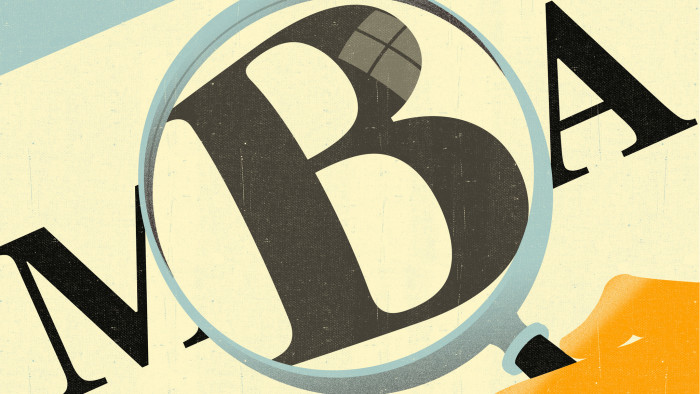Serious players

Simply sign up to the Business education myFT Digest -- delivered directly to your inbox.
There is an air of déjà vu about the top of the 2013 Financial Times Global MBA Ranking – but with a twist: the same five business schools retain the hard-won top places, but the order has changed. The 15th edition of the ranking sees the return of Harvard Business School to the top spot, eight years after it last held the position.
While eight schools over the past 15 years made it into the top five places, four schools have dominated this elite group. Harvard Business School and the University of Pennsylvania: Wharton share the distinction of having made the top five in all 15 editions. Columbia Business School and Stanford Graduate School of Business have been ranked outside the top five only twice. London Business School has been in the top five 10 times and Insead four.
The FT ranking is based on recent surveys of business schools and of alumni who graduated in 2009. MBA programmes are assessed according to alumni career progression, their international exposure, diversity of students and staff, and the quality of faculty and research.
Harvard leads the ranking for research and generating ideas. The school’s alumni boast the second-highest average salary behind Stanford, as well as one of the biggest increases three years after graduation. Harvard is also among the top schools for career progression and its MBA was the one recommended most by graduates of other schools.
Harvard’s alumni give a high rating to the quality of the faculty, fellow students and the strength of their network. “My MBA at Harvard has prepared me beyond traditional teaching. Its case method, students and professors have given me the skills to succeed in my career goals,” says Alfonso Alanis-Cue, who graduated in 2009 and is now a senior manager.
Esade Business School in Spain and University of Cambridge: Judge in the UK registered the most improved performance in the top half of the ranking, rising 11 and 10 places respectively.
The graphic illustrates the career progression of an average MBA alumnus from before starting the course to three years after graduation. See www.ft.com/business-education/mba2013 for an interactive version with additional information.
The average participant was a 28-year-old professional on a salary of $65,000. Three years after graduation, the average alumnus is a now a senior manager or higher on a salary of $134,000.
Places on the best MBAs are subject to a very competitive application process. Fewer than one in four applicants are offered a place on the FT’s top 100 ranked MBAs. The average Graduate Management Admission Test score of those who were accepted was approximately 680, compared with the global average for all those taking the exam of 550 in 2012.
Rigorous selection processes ensure participants have the motivation and skills to benefit from an MBA. But depressed economies and a cost for those with no financial support averaging $100,000 at a top 100 school, mean these programmes cannot be undertaken lightly.
While 89 per cent of alumni found a job within three months of graduation, others struggled. A 2011 FT poll of MBA graduates found the salary on graduation did not meet the expectation of 27 per cent, while 37 per cent were disappointed about their level of seniority.
To explore the MBA board game, click here
Comments